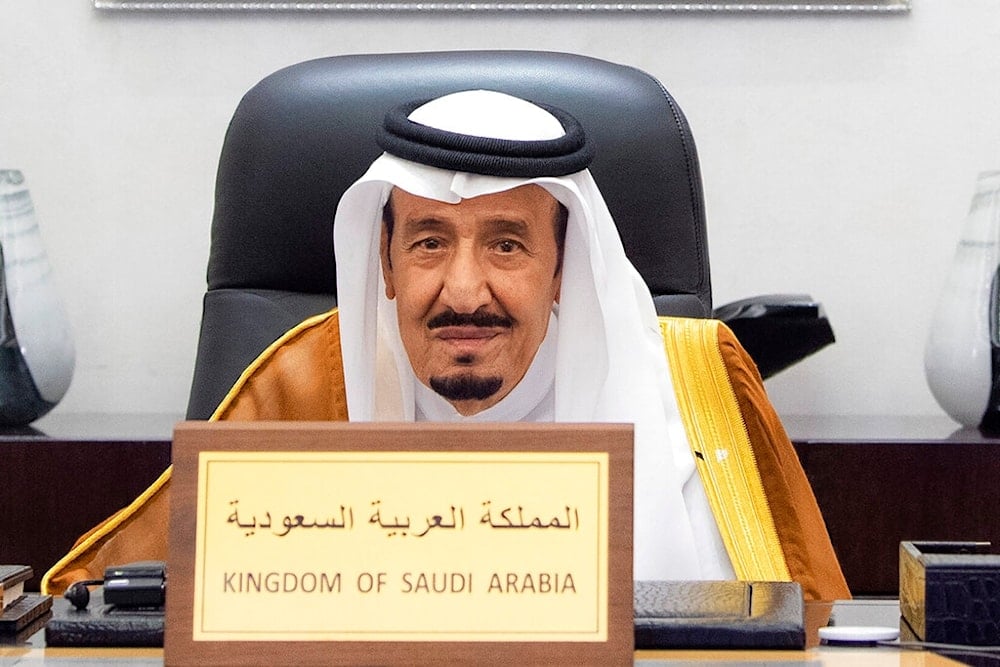Saudi King Salman receives letter from Russia's Putin on ties
The letter addresses bilateral ties, as officials from both nations met for discussions.
-

In this photo released by the Saudi Royal Palace, Saudi King Salman attends the G20 Leaders' Summit via videoconference at the Royal Palace in Riyadh, Saudi Arabia, on Oct. 30, 2021 (Saudi Royal Palace via AP, File)
Saudi Arabia’s King Salman bin Abdulaziz Al Saud has received a written message from Russian President Vladimir Putin, addressing the state of bilateral relations between the two nations, according to a report by the Saudi Press Agency (SPA) on Friday.
"Custodian of the Two Holy Mosques King Salman bin Abdulaziz Al Saud received a written message from Russian Federation President Vladimir Putin on bilateral relations," the report confirmed.
Saudi, Russian officials discuss regional developments
The letter was delivered through Vice Minister of Foreign Affairs Walid ElKhereiji in a meeting with Russian Ambassador to Saudi Arabia Sergey Kozlov, during which both sides reviewed the current state of Russian-Saudi relations.
According to SPA, discussions also covered recent developments in the Middle East and global affairs, indicating a broader dialogue beyond bilateral issues.
While the content of Putin’s letter was not disclosed, the communication underscores the importance both nations place on maintaining open channels of dialogue and cooperation.
Read more: Putin invites Arab leaders to 1st Russian-Arab Summit in October
State of Russian-Saudi ties
Russian-Saudi relations have grown increasingly pragmatic and strategic in recent years, underpinned by shared interests in energy cooperation and regional stability.
Both countries have worked closely through the OPEC+ framework to manage global oil production and stabilize markets, aligning their economic priorities despite historical differences.
Politically, Moscow and Riyadh have maintained open channels of dialogue on key regional issues, including Syria and Iran, while carefully navigating their respective alliances with competing global powers.
Although occasional divergences remain, particularly in their broader foreign policy outlooks, the bilateral relationship is marked by a mutual interest in preserving economic ties and avoiding confrontation.
Read more: Gulf leaders urge Trump to avoid Iran strike, support diplomacy: Axios

 2 Min Read
2 Min Read










